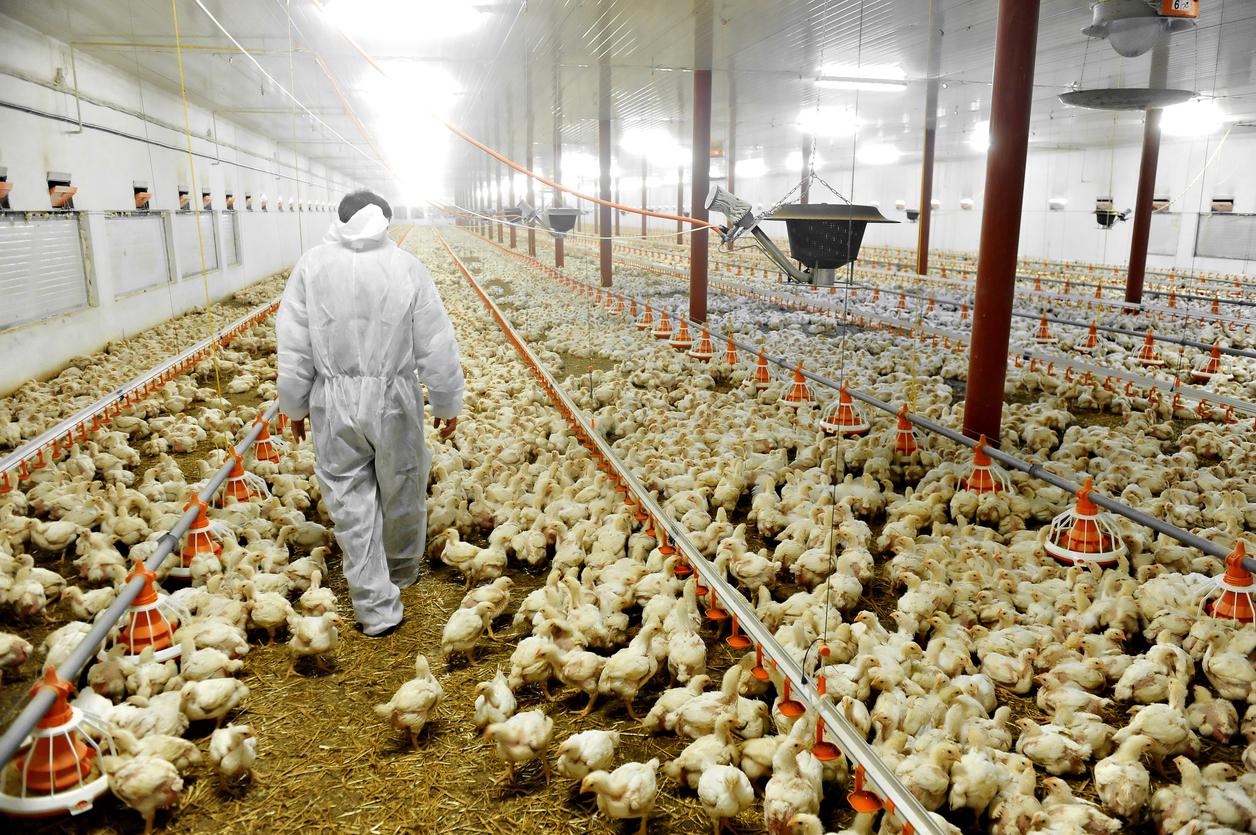The undercover investigators exposing animal abuse in factory farms
"Inherent abuse and cruelty is standard industry practice"

Think of a farm and what comes to mind? Lambs leaping through a field, pigs rolling around in the mud and cows chomping on lush grass.
Sadly, that vision is now a rarity - most chickens, ducks and turkeys in the UK are farmed in huge industrial sheds and a whopping 99 per cent of farm animals in the US are reared in factory farms, according to the ASPCA.
Intensive, industrialised factory farming that abuses animals for the sake of production, efficiency and profit is all too common, but one organisation is exposing such cruelty and hoping to end the abuse.
Mercy For Animals is a not-for-profit organisation fighting to protect and end the systematic abuse of farmed animals.
One of the main ways they do that is by sending undercover investigators into factory farms and slaughterhouses to document the inhumane treatment.
Danielle* is one such investigator who has travelled all over the US working undercover to expose what really happens in factory farms. She’s been doing so for over three years but is still shocked by what she witnesses every day.
“There’s lots of inherent abuse and cruelty which is standard industry practice,” she told The Independent, adding that the ‘farms’ are always very dirty, dusty, unhygienic, crowded environments which are not good places for animals.
Danielle started working for Mercy For Animals because she wanted to be more active in food issues and animal welfare, so the treatment she has to witness can be hard to stomach.
Some of the worst but most common abuse Danielle has seen is the use of gestation crates in the pork industry: “They’re basically tiny cages where pigs are kept, barely bigger than their own bodies, and the pigs can’t even turn around,” she explains.
Rows and rows of thousands of pigs are kept in these crates their entire lives. “It’s so unnatural to keep a creature in a tiny cage where they can barely move,” Danielle says.
As well as such intense confinement, Danielle has witnessed a chicken have a heart attack right in front of her.
The chickens are fattened up for slaughter in just 42 days, and because it’s done so quickly, “their bodies often can’t handle the weight they have to carry around,” she explains.
Although upsetting to watch, Danielle can’t show any emotional reaction to something that is standard industry practice and happens every day, lest she blow her cover.
Danielle has never come close to being discovered though.
She applies for real jobs at farms and slaughterhouses when they come up, and she uses her real identity, social security number and CV: “I follow all laws when I go and do an investigation,” she says.
Fortunately, when applying for these low-skilled general labour jobs, you don’t need any specific experience.
Danielle stays as long as it takes to document what’s happening, which is usually between one and three months.
Despite having been an undercover investigator for years now, she still gets nervous because she knows she’s going to witness such cruel treatment and abuse.
“I’m nervous but I’m there to do my job,” she says. “I have a good motivation to go in there and document what’s happening behind the scenes of how our food is produced. I want to be the eyes and ears of the public.”
The hardest part of the job, however, is to witness all the abuse at factory farms and not be able to do anything about it for the animals already in there.
Danielle just has to remind herself that by exposing these conditions, she hopes to make a difference for the animals in the long run.
The trouble is that many people don’t know where their food comes from and have no idea what goes on at factory farms.
Through her work with Mercy For Animals, Danielle hopes to encourage people to reflect on the ways their food choices can affect what happens in factory farms.
With brutal treatment still standard practice, there's a long way to go.
*Not her real name
Join our commenting forum
Join thought-provoking conversations, follow other Independent readers and see their replies
Comments